A pioneer in solidarity investment in the South and East, SIDI publishes its annual report

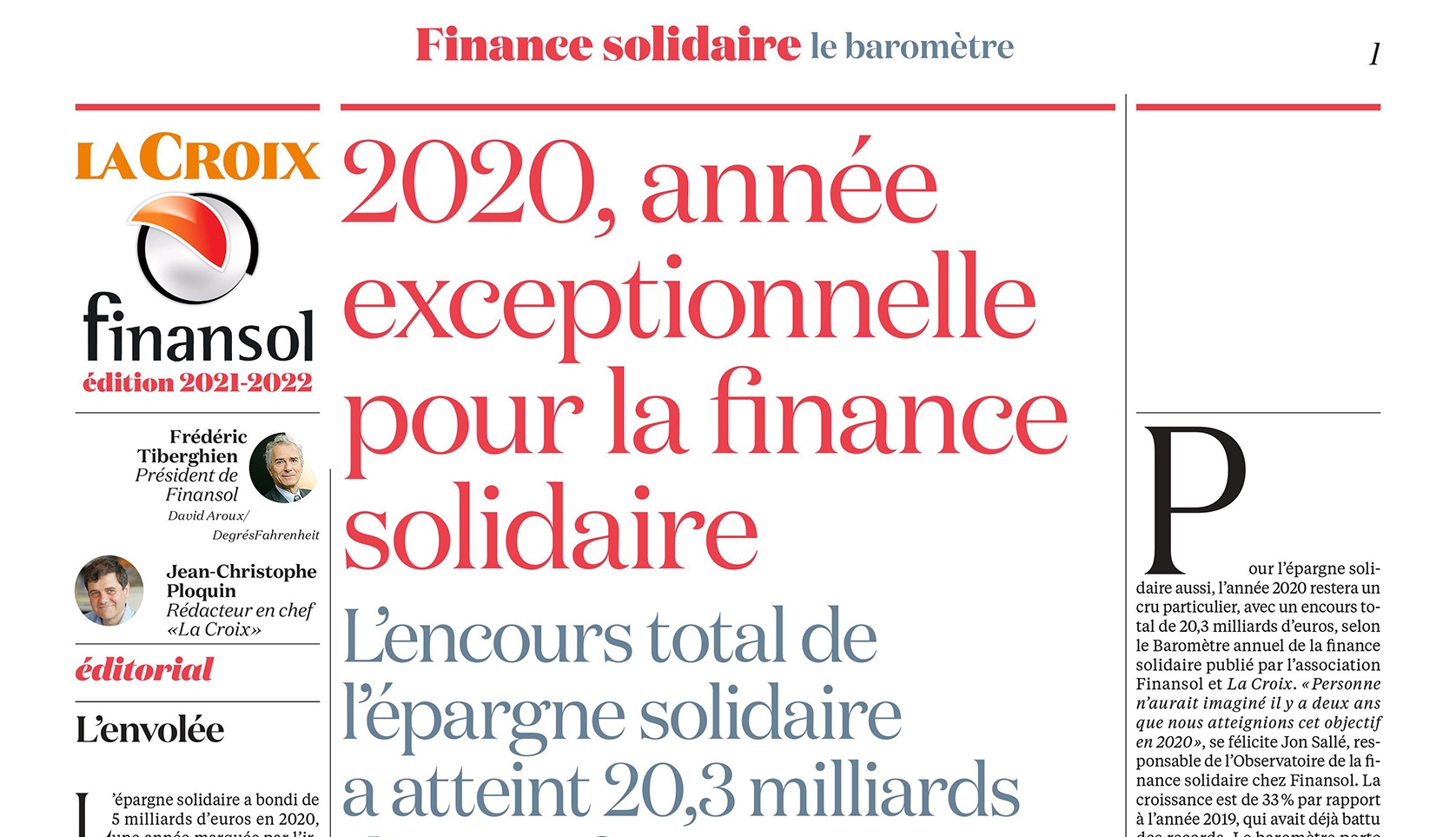
[chapeau]Every year, La Croix newspaper, in partnership with the Fair / Finansol association, publishes the Solidarity Finance Barometer, which analyzes the major trends in the sector.[/chapeau]
Solidarity finance continues to make great strides: total outstanding solidarity savings reached 20.3 billion euros at the end of 2020, up 33% year-on-year!
Find out all about the trends and impact of solidarity finance in France, whatever the savings channel you choose: savings via your company, direct savings via a solidarity enterprise like SIDI, savings via your mutual or insurance company.
There’s also a focus on social finance initiatives and a list of Finansol-labeled investments.
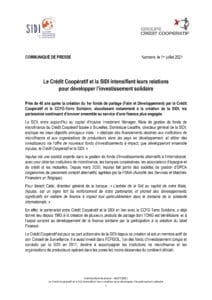 [CP] SIDI and Crédit Coopératif intensify their relationship for solidarity investment.
[CP] SIDI and Crédit Coopératif intensify their relationship for solidarity investment.
SIDI and Crédit Coopératif are pleased to announce the strengthening of their partnership in the service of solidarity finance.
By acquiring a stake in Inpulse Investment Manager, a microfinance fund management company and subsidiary of Crédit Coopératif, SIDI will be able to expand its range of services for its partners in developing countries. This will give SIDI considerable additional leverage to attract new investors via the impact funds it will be developing with Inpulse and Crédit Coopératif.
SIDI promotes finance that serves integral, socially just and ecologically sustainable development, based on the values of solidarity, trust, ethics and transparency. Its private and institutional shareholders give it the means to carry out its activities, and in return expect added value that is exclusively human, social and environmental.
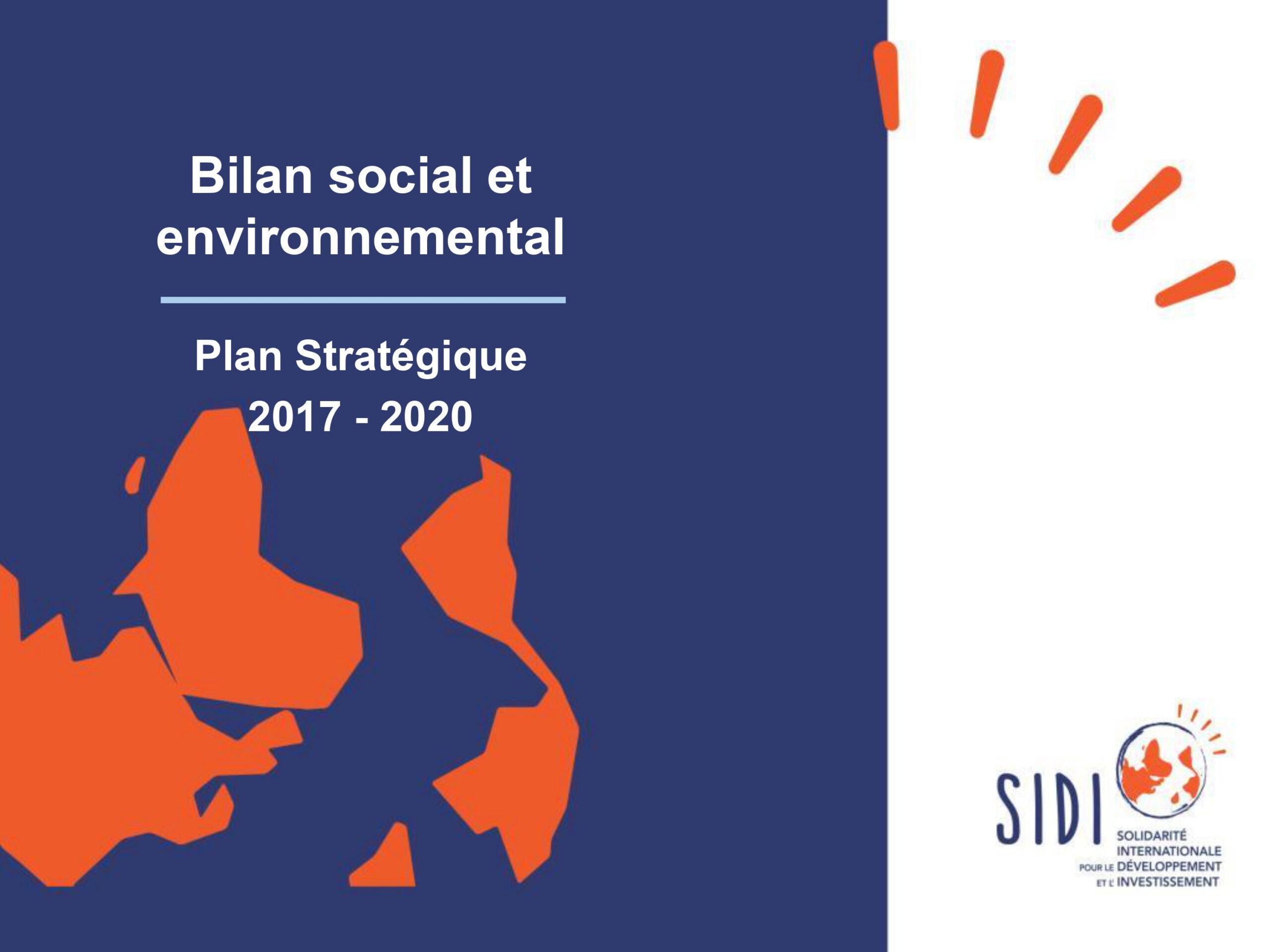
This year’s Social and Environmental Review looks back over the four years of SIDI’s 2017-2020 Strategic Plan.
A wealth of information and figures highlighting the importance of the two pillars on which SIDI’s action towards its partners is based: financing and support.
An assessment that measures our progress, and that of our partners, in terms of ecological and social transition.
→ 139 partners in 36 countries
→ Growth in SIDI’s overall portfolio: from €25.1m in 2017 to €37.3m by the end of 2020
→ Africa remains SIDI’s No. 1 priority: 67% of partners, 56% of its portfolio by the end of 2020
→ Micro-finance institutions focused on rural financing, producer organizations mostly certified organic and fair trade
→ A focus on the most vulnerable populations: 46% of beneficiaries are women and 47% are from rural areas
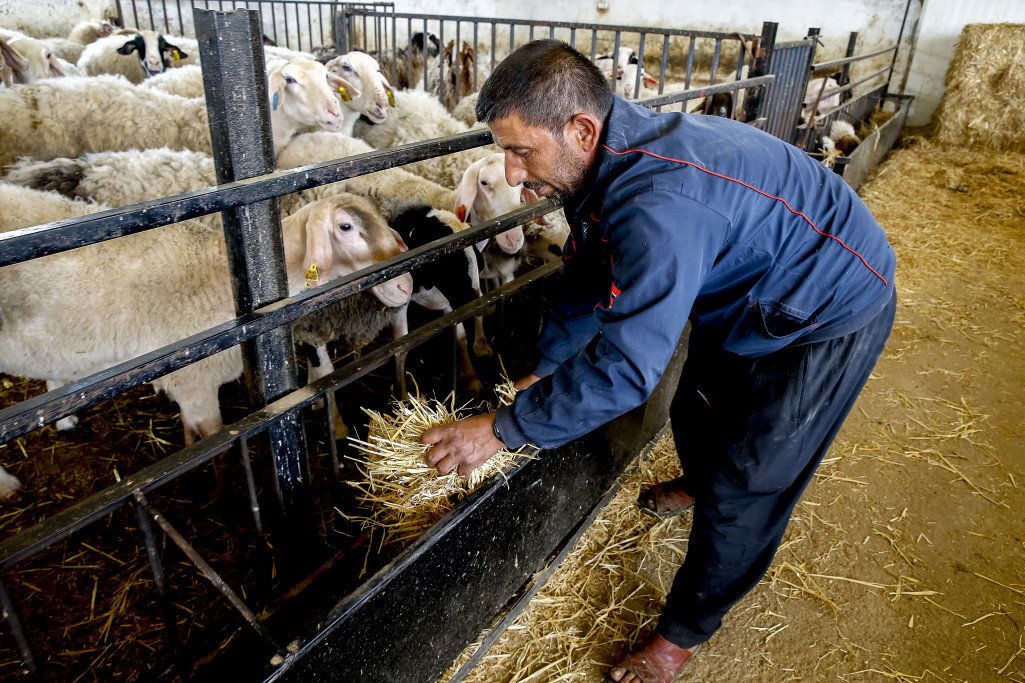
[chapeau] In the face of a major new crisis affecting Palestine, SIDI rejects all violence and recalls that the Palestinians are first and foremost a people, of all secular and religious persuasions, deprived of their rights. SIDI intends to pursue its commitment in this area in order to provide the population with access to the essential financial services they need to develop their economic activities. [/chapeau]
SIDI has been involved in Palestine since the 90s, defending the economic rights of the population through its work with local microfinance institutions ACAD and ASALA. It was the first solidarity investor.
Given the recurrence of crises and the violent effects of occupation, it became clear to SIDI that microfinance could not develop without a guarantee fund to cover these contextual risks. Current events once again confirm the relevance of the DAMAN guarantee fund, set up in 2008 by SIDI with its two partners ACAD Finance and ASALA Credit & Development.
This risk is in fact multiplied, and concerns in particular the foreseeable destruction of economic projects financed by microfinance institutions. In practical terms, DAMAN enables local microfinance institutions to continue covering the risk of lending to vulnerable populations in the West Bank and Gaza: when the beneficiary of a microcredit is unable to repay due to acts of war or the consequences of the Israeli occupation, the MFI can then call on DAMAN for compensation.
DAMAN was perpetuated in 2015 by the creation of a non-profit company recognized by the Palestinian Monetary Authority. The DAMAN fund is therefore open to financial support from other players, and today enjoys the support of the NGO Paix Juste au Proche Orient.
SIDI is pursuing its mission as a solidarity investor in Palestine and is standing by its partners as they face up to the dramatic challenges of today. It will continue to call for sincere dialogue and a just peace.
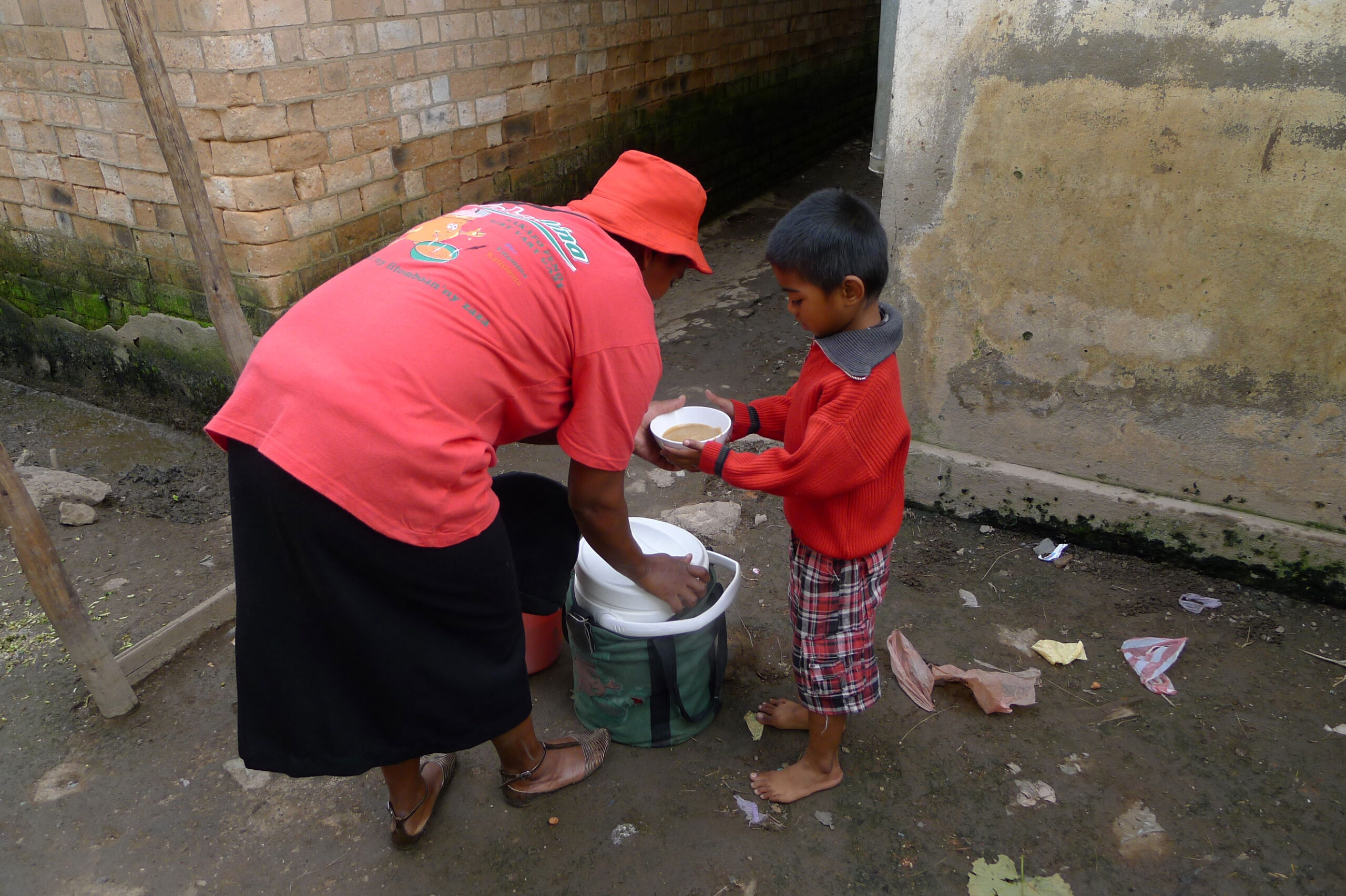
[chapeau]In a country where child malnutrition still affects one in two infants, Nutri’zaza offers a sustainable way of combating this scourge by marketing a local, effective product that is accessible to all. [/chapeau]
In Madagascar, food security is still very fragile. Children are particularly at risk: it is estimated that one in two children under 5 suffers from chronic malnutrition (ESD, 2008-2009). Less visible than acute malnutrition, which is characteristic of food crises, chronic malnutrition nevertheless delays children’s development and weakens their health. The after-effects are irreversible after the age of two, and chronic malnutrition is one of the main causes of mortality in young children. This is due to the inadequate quality of young children’s diets (breastfeeding practices and diets that do not cover essential needs, poor-quality complementary foods).
It was to address this problem in a sustainable way that the social enterprise Nutri’zaza was created in 2013. Following on from the “Nutrimad” project launched ten years earlier by GRET, Nutri’zaza distributes a complementary food, Koba Aina, to underprivileged populations via a network of baby restaurants (hotelin-jazakely) and a home sales network. [blockquote noquote=”1″ float=”right”] By becoming a founding shareholder of Nutri’zaza, and an active shareholder on the Board of Directors, SIDI is helping to support the company’s development and give it the means to experiment with different models in order to perpetuate a service that plays a key role in reducing chronic malnutrition in Madagascar. [/blockquote] This highly nutritious infant flour provides the elements needed for infant growth when breastfeeding is no longer sufficient (from 6 months) and traditional household meals are not yet sufficient. Koba Aina is produced and packaged from Madagascan raw materials and based on a nutritional formula developed by GRET. The product complies with the strictest international quality standards, both in terms of nutrition and health. This product offers the best value for money on the market, so that we can reach the most vulnerable households. Nutri’zaza also provides families with a place to check their children’s health, with regular weighing and monitoring of undernutrition. To reinforce its impact on the most disadvantaged populations, Nutri’zaza has also developed long-term partnerships with local associations, regularly supplying them with Koba Aina at highly preferential prices.
In order to guarantee the equilibrium of its economic model, Nutri’zaza is banking on the transformation of Koba Aina into a mass consumption product, intended for and accessible to as many people as possible, notably through the traditional distribution network (supermarkets, local grocery stores, etc.).

[chapeau]Since the beginning of the crisis linked to the Covid-19 pandemic, SIDI has maintained an ongoing dialogue with international microfinance players. As part of this commitment, we have recently committed to a set of key principles developed collectively to help MFIs and their customers cope with the effects of the crisis.[/chapeau]
SIDI is a member of a think tank, made up of microfinance players, which met in April 2020, at the initiative of the Grameen Crédit Agricole Foundation, to discuss the situation and define a joint commitment to guide the response to the health and economic crisis. This could spell trouble for many MFIs and their customers, leaving vulnerable populations in desperate straits. The challenge was therefore to jointly find solutions to limit the effects of the crisis as much as possible, while continuing to strengthen financial inclusion for vulnerable populations. A list of key principles to be respected between investors has been drawn up to protect both MFIs and their customers, and guarantee continued access to financing under the best possible conditions.
By signing this agreement, SIDI undertakes to respect this non-exhaustive list of principles(full document here):
In the current context, it is essential to forge operational alliances between microfinance players in order to best support those MFIs that will be hardest hit by the crisis. SIDI is thus preparing to adapt and soften the profile of its relationships with its partner organizations, according to its capacities and in a coordinated manner.
"*" indicates required fields
Notifications